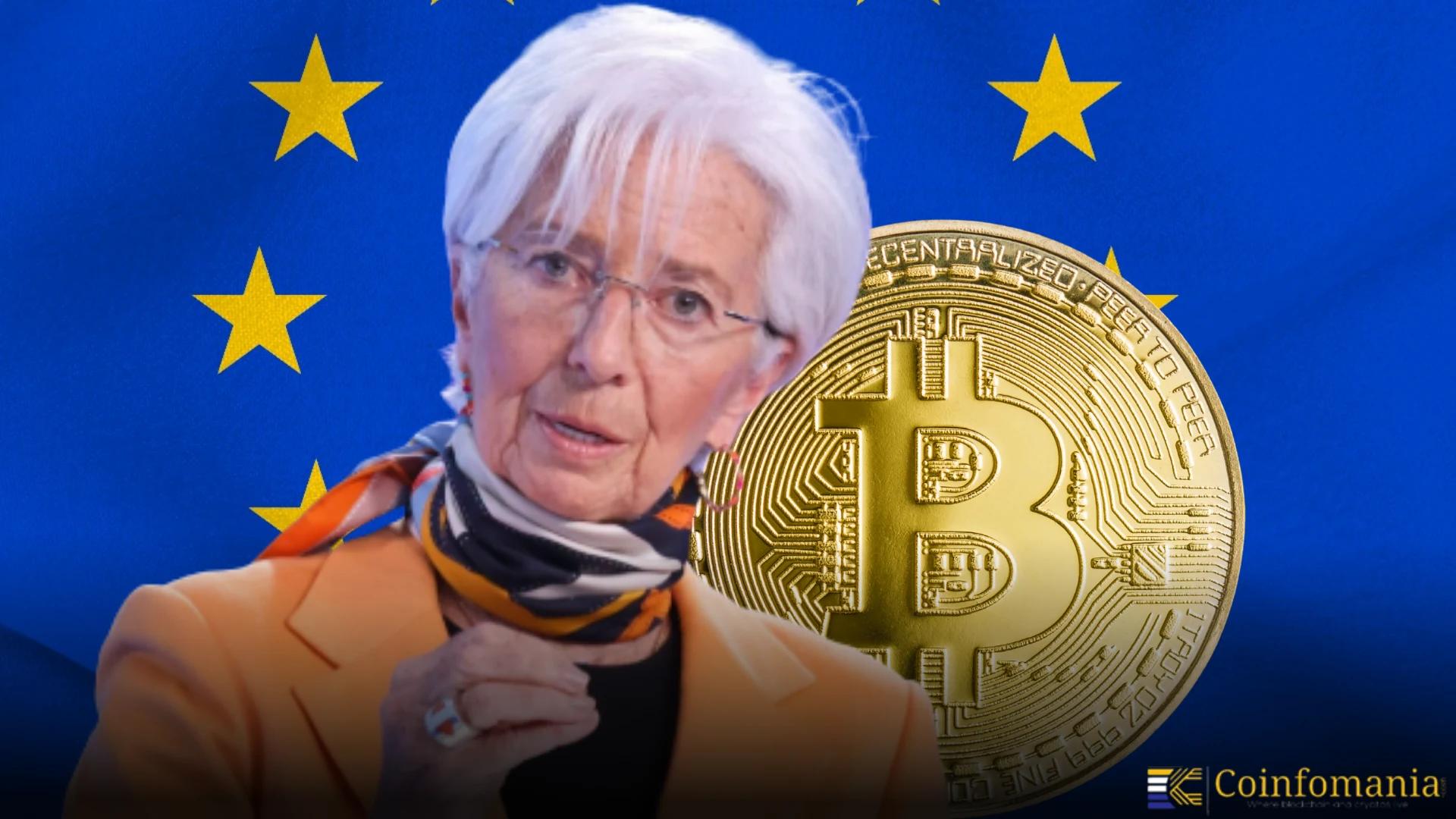Christine Lagarde Questions Bitcoin’s Value as the Euro Weakens
Let’s uncover why Christine Lagarde dismisses Bitcoin’s value even as the Euro loses 40% of its purchasing power.

Quick Take
Summary is AI generated, newsroom reviewed.
Christine Lagarde claimed Bitcoin has “no underlying value,” sparking new debate on fiat vs crypto.
The Euro has lost over 40% of its purchasing power since 2002, challenging ECB credibility.
The Bitcoin vs Euro debate reflects a growing shift toward decentralized finance and digital assets.
Recently Christine Lagarde, the president of the European Central Bank, weighed in on the tension between traditional finance and technology solutions. She argued that “there is no underlying value to Bitcoin,” constraining it to the realm of speculation – not money.
Lagarde’s remarks arrive at a time when the Euro has lost over 40% of its purchasing power since 2002. As inflation pressures mount and central banks fight to retain credibility and relevance, the debate around fiat money’s survival in a decentralized world grows stronger. The comparison between Bitcoin and the Euro on inflation and value preservation has never felt more significant.
JUST IN: 🇪🇺 European Central Bank’s President Christine Lagarde says, "There is no underlying value” to #Bitcoin
— Bitcoin Magazine (@BitcoinMagazine) October 7, 2025
Meanwhile, the Euro has lost over 40% of its purchasing power in the last twenty years. pic.twitter.com/gHhuvwSKpY
ECB’s Stance on Bitcoin: An Asset Without “Intrinsic Value”?
Comments made by Lagarde are in line with the ECB’s long-established view in regard to skepticism towards crypto. Meanwhile, the ECB considers that digital assets, such as Bitcoin, jeopardize financial stability and lack the legal legitimacy as traditional money. Lagarde characterized Bitcoin as a speculative instrument driven by speculation rather than a secure method of value retention over time.
Some analysts argue this view ignores the flaws in the current financial system. The Euro’s purchasing power has declined sharply over the past 20 years, eroding household savings and confidence in the currency. When comparing the ECB’s monetary policy with Bitcoin’s growing acceptance, conditions now encourage a deeper debate about Bitcoin’s value as a unit of account versus the Euro’s role as a medium of exchange.
Lagarde’s Remarks Reflect a Larger Fear
BThe core problem that supports Lagarde’s forceful statement is a larger institutional problem with losing monetary authority. Central banks now face difficulties retaining control over liquidity and inflation as Bitcoin becomes more prevalent. The idea of citizens switching to decentralized currency establishes skepticism about traditional systems of authority based on fiat money.
The European Central Bank is still working on its own Euro digital project, although, public perception is still yet to be seen. Many depict central banking digital currencies as a form of surveillance and control, while cryptocurrencies represent financial autonomy and independence.
Can the Euro Compete in a Decentralized Future?
With growth in Europe slowing, debt rising and purchasing power declining, pressure to innovate within the financial system is mounting. Although Lagarde’s comments may give policymakers some comfort, the markets continue to build a transition toward digital assets that incorporate transparency, security, and independence.
If the Euro keeps weakening in the coming months, public confidence may shift further toward Bitcoin and other decentralized assets. The ECB must now decide whether to adapt to these advancements or maintain its resistance, as its response could shape the future balance of the global financial system.
Follow us on Google News
Get the latest crypto insights and updates.

